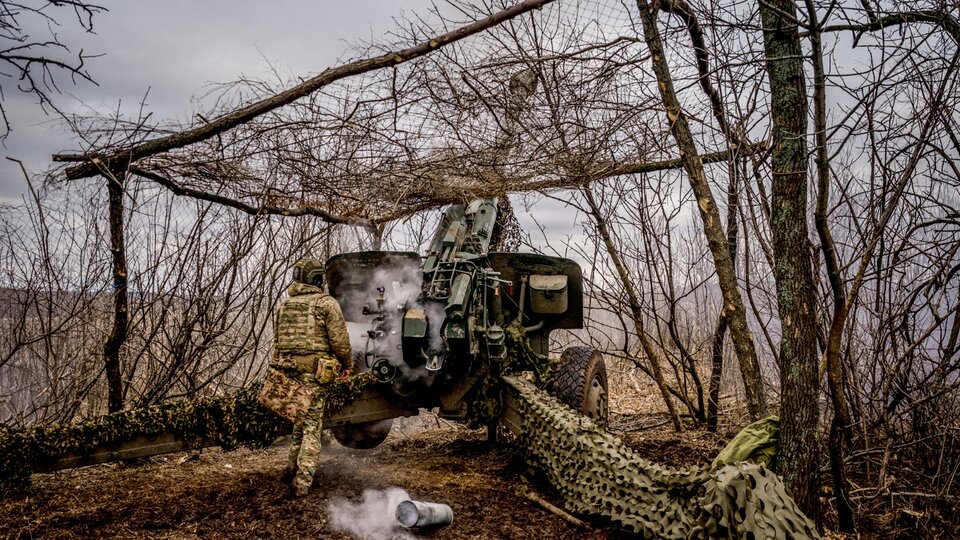Whenever there is a war in the West, the left appears divided. Today, one year after the start of the armed conflict, the Latin American left tends to make errors in its analyzes which, from our perspective, make it impossible to draw the pertinent conclusions.
To want to see, on the one hand, that a legitimate resistance to imperialism lies within the Russian invasion is to indulge in Putin’s nostalgic account of Czarist and imperial Russia, openly expressing his contempt for Lenin and the Bolsheviks for having ceded to the nations of the Empire their right to self-determination. In his ideological construction of a great Russia he has repeatedly come to deny that there is such a thing as a Ukrainian nation. Those arguments framed under a scheme where Russia is the direct heir to what was once the Soviet Union only add confusion when it comes to addressing the causes and consequences of the war in Ukraine. In history, it rarely happens that the enemy of my enemy ends up being my friend.
On the other hand, those who see in armed conflict a possible reconfiguration of geopolitical forces, a kind of multipolar world where hegemony oscillates between various powers, seem to ignore that war always brings death and misery, both for Ukrainians and Russians. It even affects every corner of the planet, altering food prices that often end up affecting the most vulnerable.
The conflict will not only fail to open a space for multipolarity, but will also help to revitalize the business of war, or in other words, the imbrication of capitalism and war. In less than a year, the United States has achieved milestones impossible to imagine with diplomacy and without a single death among its ranks: a) it has replaced Russia as the main supplier of hydrocarbons for all of Europe; b) it has managed to revive its largest body of political and ideological influence in Europe, NATO, with the entry of Finland and Sweden as new members —the same NATO that French President Macron gave up for dead months before the outbreak of the conflict—; and c) it has managed to multiply the defense budget of the entire European Union in one year. Only in Germany has the largest military spending since the fall of Nazism been approved. At some point it will be inevitable to address what consequences all this increase in weapons will have in the medium term.
At the other extreme is what has been called left-liberal progressivism, the one that sees NATO as the guarantor of the democratic values of the West. According to this version, it would be a fight against Russian totalitarianism, identity-based, oligarchic and corrupt, which restricts freedoms and persecutes dissidents. Politicians and intellectuals, mostly Europeans, thus repeat positions that were already the object of harsh criticism in the Balkan conflict in the 1990s. The only thing that takes hold here, from our perspective, is not the democratic values that they seek to protect. but rather a politics of resentment, where war is always a business that the people end up paying for.
Lastly, when looking at imperialism from a Latin American perspective, it is valid, however, to understand that despite the failure of the war interventions of the United States in the wars of Korea, Vietnam, Iraq or Afghanistan, the effectiveness against the vulnerable democracies in The entire American continent has left a deep mark that is difficult to scar. But it would be a mistake to believe that imperialism, extractivism, neocolonialism or any of the names by which we define the appetite of the powers for the region’s raw materials will adopt only one face. To the historic role of the United States will be added that of China, disputing its hegemony, so it will be essential when the time comes for the creation of a Latin American front that defends its sovereignty, its wealth and its peoples.
Perhaps the only alternative proposal is China, an idea that in principle is presented as unacceptable since it would be giving it the witness of a new world order. Given this panorama, it becomes crucial that Latin America, due to its historical link with projects of sovereignty and emancipation, does not get caught up in this dispute that is currently taking place within capitalism.
Today more than ever, as has happened in other moments in history, peace continues to be the first condition of possibility to lay the foundations of a transformative project, one that may one day come to constitute an alliance of peoples against domination. neoliberal.
